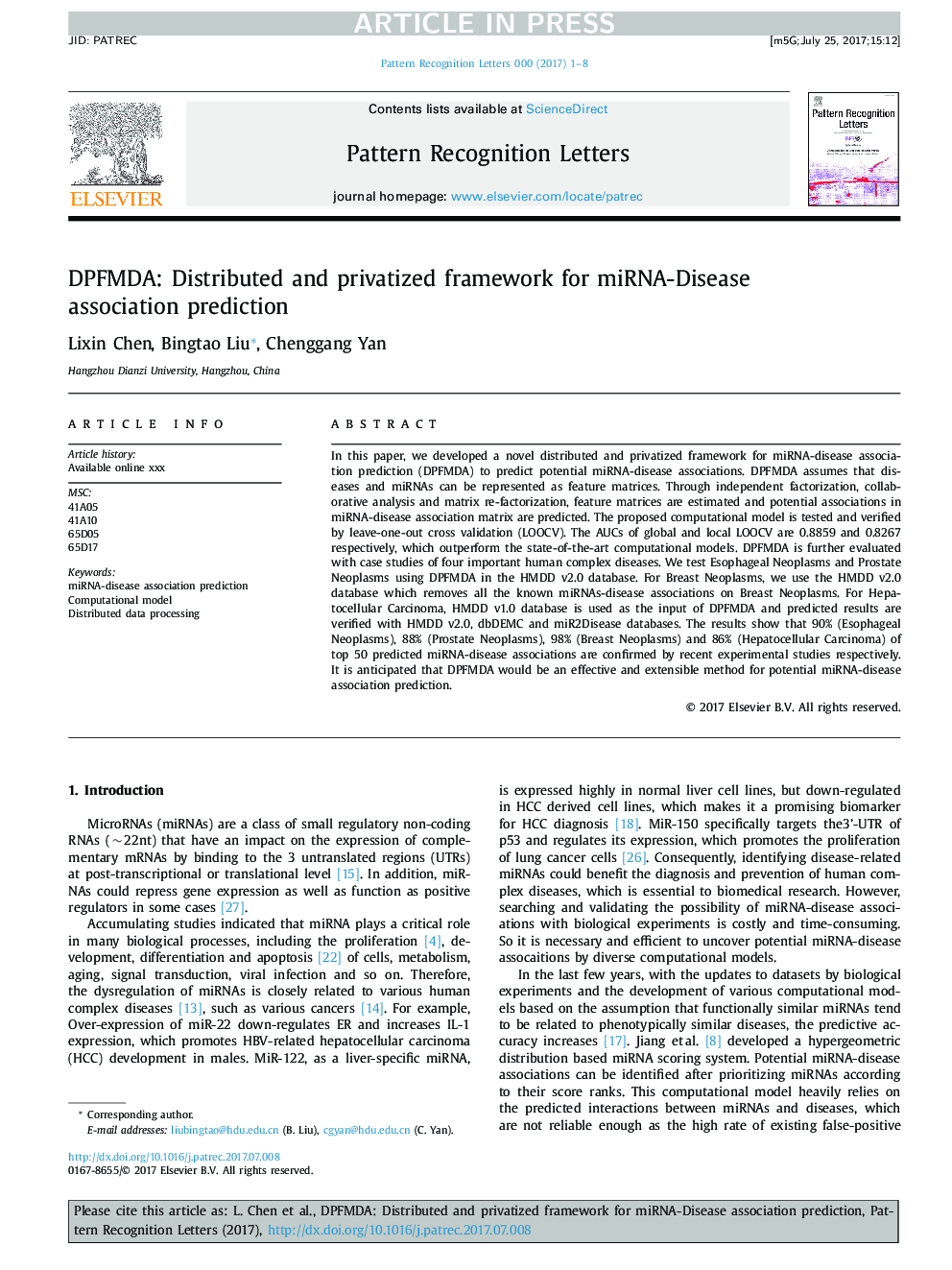| کد مقاله | کد نشریه | سال انتشار | مقاله انگلیسی | نسخه تمام متن |
|---|---|---|---|---|
| 6940276 | 1450010 | 2018 | 8 صفحه PDF | دانلود رایگان |
عنوان انگلیسی مقاله ISI
DPFMDA: Distributed and privatized framework for miRNA-Disease association prediction
دانلود مقاله + سفارش ترجمه
دانلود مقاله ISI انگلیسی
رایگان برای ایرانیان
کلمات کلیدی
موضوعات مرتبط
مهندسی و علوم پایه
مهندسی کامپیوتر
چشم انداز کامپیوتر و تشخیص الگو
پیش نمایش صفحه اول مقاله

چکیده انگلیسی
In this paper, we developed a novel distributed and privatized framework for miRNA-disease association prediction (DPFMDA) to predict potential miRNA-disease associations. DPFMDA assumes that diseases and miRNAs can be represented as feature matrices. Through independent factorization, collaborative analysis and matrix re-factorization, feature matrices are estimated and potential associations in miRNA-disease association matrix are predicted. The proposed computational model is tested and verified by leave-one-out cross validation (LOOCV). The AUCs of global and local LOOCV are 0.8859 and 0.8267 respectively, which outperform the state-of-the-art computational models. DPFMDA is further evaluated with case studies of four important human complex diseases. We test Esophageal Neoplasms and Prostate Neoplasms using DPFMDA in the HMDD v2.0 database. For Breast Neoplasms, we use the HMDD v2.0 database which removes all the known miRNAs-disease associations on Breast Neoplasms. For Hepatocellular Carcinoma, HMDD v1.0 database is used as the input of DPFMDA and predicted results are verified with HMDD v2.0, dbDEMC and miR2Disease databases. The results show that 90% (Esophageal Neoplasms), 88% (Prostate Neoplasms), 98% (Breast Neoplasms) and 86% (Hepatocellular Carcinoma) of top 50 predicted miRNA-disease associations are confirmed by recent experimental studies respectively. It is anticipated that DPFMDA would be an effective and extensible method for potential miRNA-disease association prediction.
ناشر
Database: Elsevier - ScienceDirect (ساینس دایرکت)
Journal: Pattern Recognition Letters - Volume 109, 15 July 2018, Pages 4-11
Journal: Pattern Recognition Letters - Volume 109, 15 July 2018, Pages 4-11
نویسندگان
Lixin Chen, Bingtao Liu, Chenggang Yan,